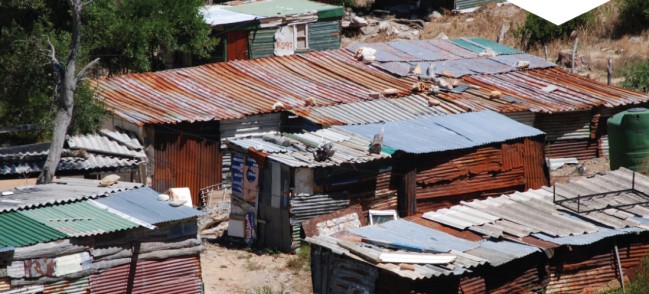Much of the research at UCT around cities is linked to the ACC. The initiative is focused on scholarship regarding the dynamics of unsustainable urbanisation processes in Africa, with a view to identifying system-wide responses. Professor Edgar Pieterse holds the DST/NRF SARChI Chair in Urban Policy, and leads a team of experts developing an Urban Development Framework for South Africa.
Professor Pieterse says the birth of the ACC came at a time when there was an increasing global discourse about urbanisation – and the question became unavoidable: why is there never an African voice?
The ACC seeks to be that voice and in seven short years has built an impressive record of scholarship and research.
Professor Pieterse believes it is possible to completely rethink the notion of resource allocation. “It’s a story of widening inequality, of intensifying grinding poverty, and the intensification of disproportional risk on the part of the urban majority across the Global South,” he says. He believes that if one combines the knowledge and creative power of four types of people, this can be achieved. The first type is the philosopher-ethicist, who will provide the critical mass of knowledge needed. The second is the artist, who is in tune with the interior voice of human beings. The third type he refers to as the hacker, who is able to both master machinery and systems, and subvert these for a greater purpose. The final type would be the designer, whose creativity can make an urban space that works for everybody.
The ACC is a major player in contemporary urban discourse internationally.
These principles certainly underpin some of the work done by the ACC, although its emphasis is considerably broader. Professor Gordon Pirie, deputy director of the ACC, says the ACC exists primarily to generate new knowledge about urban processes and provide an evidence base for making African cities more efficient, equitable and sustainable.
To this end, its purpose is to spread awareness among national and urban policymakers in Africa and globally about the many crises facing cities on the continent, and the potential that cities have to ease and resolve continental problems, such as poverty, inequality and climate change, as well as to build a new generation of urban scholars and practitioners.
For Professor Pirie, there is no shortage of achievements at the ACC. It has maintained an impressive record of publication since inception and has established itself as the pre-eminent hub of multidisciplinary urban research in Africa.
In the past year alone, several major publications have been produced by academics at the ACC, including Africa’s Urban Revolution, edited by professors Pieterse and Parnell and published in 2014 by Zed Books, and Rogue Urbanism: Emergent African Cities (Jacana), which was edited by Professor Pieterse and AbdouMaliq Simone. According to Professor Pieterse, the books seek to get policymakers and political leaders to engage with the substantive and qualitative aspects of the African urban discourse. A third volume, The Routledge Handbook on Cities of the Global South, edited by Professor Parnell and Associate Professor Sophie Oldfield, published by Routledge in 2014, works towards a geographical alignment of urban studies, employing a southern urban lens to stimulate scholarly discussion about and engagement with the city.
The ACC is a major player in contemporary urban discourse internationally and it continues to attract significant research grant income. As a result, it is a sought-after research partner, source of advisory services, and a go-to place for postgraduate researchers and established scholars.



Comments are closed.